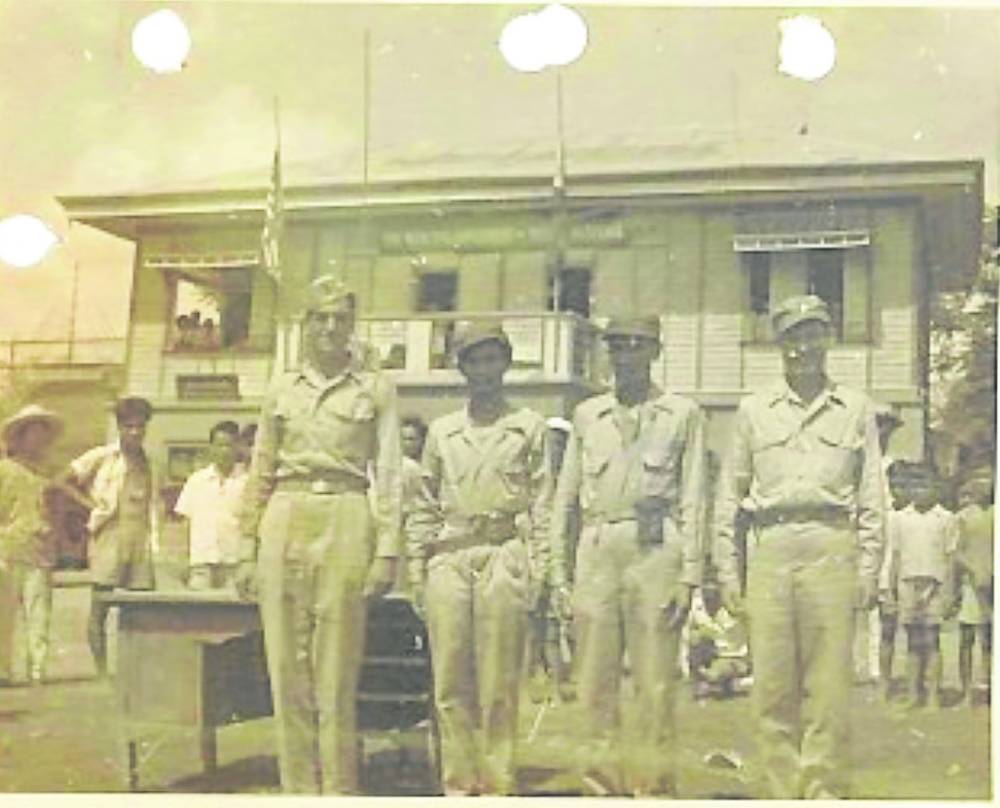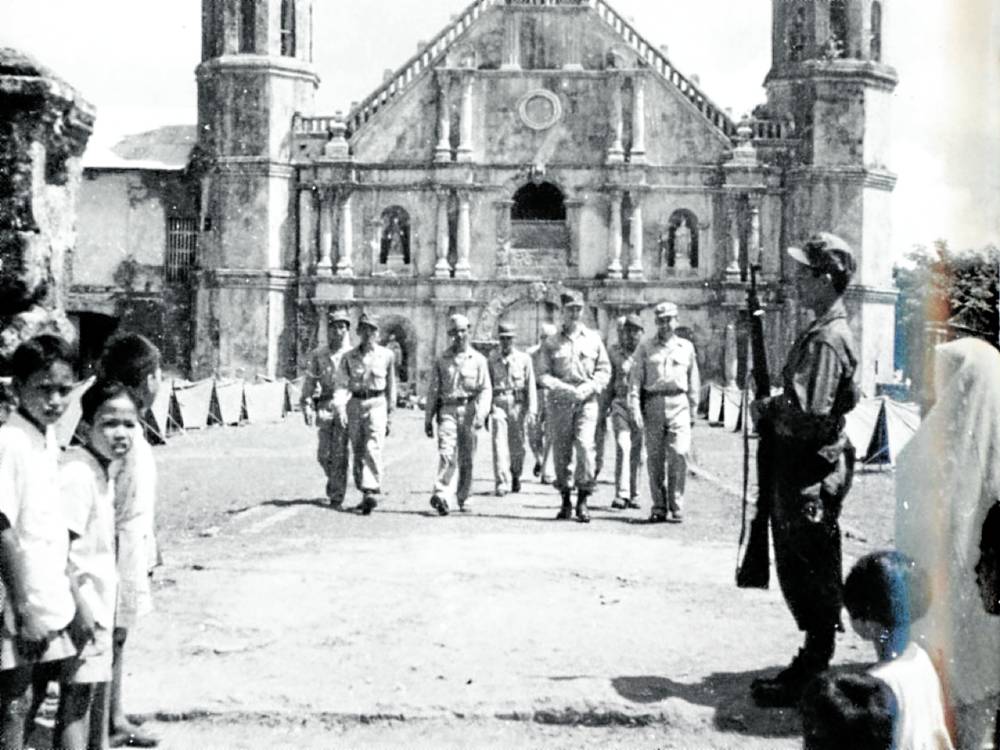Huk leader, family honored on Day of Valor

IN COMMAND Bernardo Poblete, aka Kumander Jose Banal (third from left), gathers his troops in Minalin town in Pampanga province in this photo taken in May 1945. —Photo from April 6 presentation of Ricardo Trota Jose at Holy Angel University, PAMPANGA
CITY OF SAN FERNANDO — The founder of a leading regiment in a wartime guerrilla movement and his wife and children who also joined the fighting will be recognized in today’s observance of Araw ng Kagitingan.
This is the first time that a leader of the Hukbalahap—which struck fear among the citizenry after it became the most formidable insurgent force in the postwar era—would be honored on the Day of Valor.
The holiday was established in 1961 to pay tribute to the Filipino and American soldiers in Bataan who fought hard against the invading Japanese but eventually surrendered on this day in 1942.
The Hukbalahap, short for Hukbo ng Bayan Laban sa Hapon, served as another front in the resistance to Japanese rule, as it was founded on the year of the fall of Bataan.
One of the leaders of that movement was Bernardo Poblete, who commanded a Huk regiment named after his nom de guerre Jose Banal.
Article continues after this advertisementKapampangan history
The Center for Kapampangan Studies (CKS), a research group which aims to foster interest in Kapampangan history and culture, is among the leading participants in Saturday’s ceremony at the Capas National Shrine honoring Poblete.
Article continues after this advertisementThe guerrilla leader is survived today by great-grandchildren like Rico Poblete Suba, 56. These descendants will take part in this event arranged by Capas Mayor Reynaldo Catacutan.
‘Injustice’

FREEDOM FIGHTERS Poblete (second from left) in another May 1945 photo with fellow Filipino commanders in the liberated town of Minalin, Pampanga. —Photo from April 6 presentation of Ricardo Trota Jose at Holy Angel University, PAMPANGA
Besides Poblete, his wife Rafaela, who served as ammunition and arms officer of the Banal Regiment, and their nine children will also be honored in that ceremony.
Of these children, three—Simplicio, Maximino and Elena—were killed in combat. A son, Tomas, was Poblete’s second-in-command.
Poblete served in the Philippine Scouts from 1907 to 1911. In the succeeding years until 1941 when the Japanese invaded the country, he was a civilian employee of the US Army in Corregidor, before becoming a farmer in his hometown of Minalin in Pampanga province.
His familiarity with the conditions of the peasants led to his involvement with the Hukbalahap, which grew from 200 guerrillas and five squadrons in 1942 to 10,000 members and 76 squadrons by the end of the war three years later.
In the postwar era, he “wrote letter after letter” to every American and Philippine president elected to office, seeking recognition and benefits for about 5,000 of his men, according to historian Ricardo Jose.
“The fighters in the Banal Regiment were … peasants who gave their all fighting for freedom. [Poblete’s] letter showed he wanted to help them have the means to start all over again,” Jose said in an online forum on Wednesday.
‘False roster’
The US Army recognized only 1,387 men, but denied them remuneration and pensions. Jose said Poblete’s letters, which he found in the US National Archives, noted this “injustice” done to his men.
A check by the Inquirer on the Philippine Archive Collection, which is in the care of the Philippine Veterans Affairs Office, led to several letters discrediting the Banal Regiment, claiming it was a “false roster” of fighters.
But there was also a list of actual members which Poblete certified to be true.
Furthermore, the files contained detailed reports of ambushes and other encounters involving the regiment. One report claimed that it had 2,500 encounters with the Japanese army, as well as with the Philippine Constabulary then under the Japanese command and armed civilian groups.
Today’s tribute to Poblete probably won’t be the last, because the CKS is calling for the construction of a monument honoring him and other Huk members.